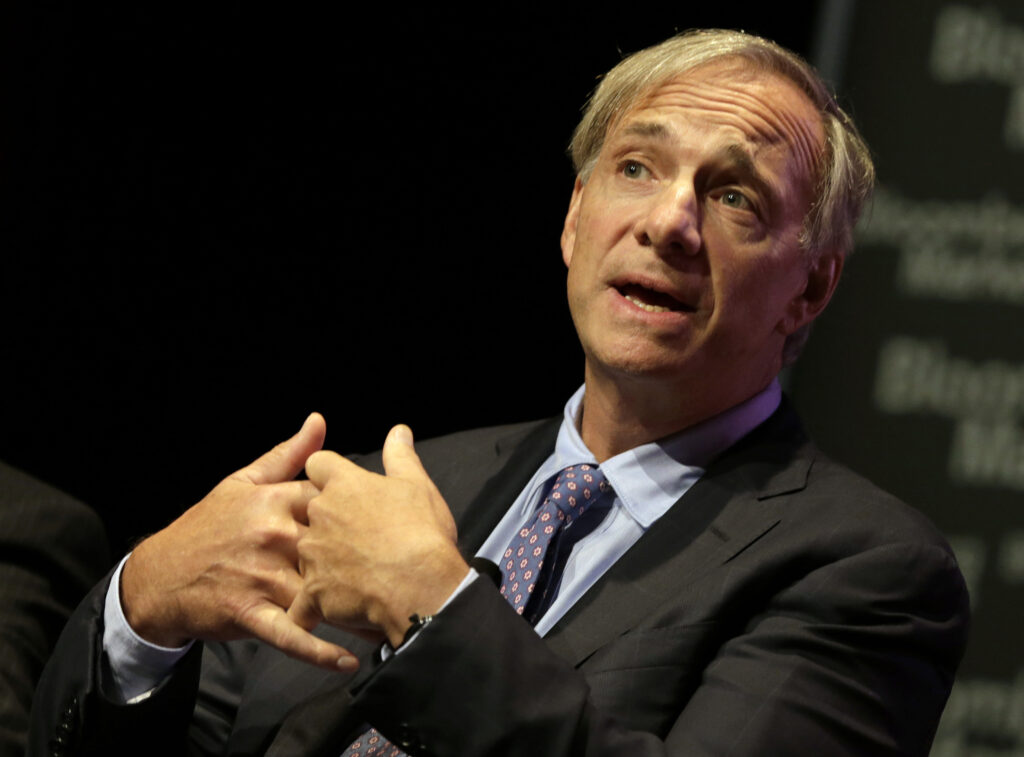Billionaire investor Ray Dalio, founder of Bridgewater Associates, has issued a stark and grave warning about the escalating political and social divisions in the United States. In a recent interview with the Financial Times, Dalio suggested that the likelihood of a civil war in the U.S. could be as high as 40%, a figure that underscores his deep concerns about the current state of the nation.
Dalio’s vision of a civil war is not one characterized by traditional physical combat, but rather an intensification of the political polarization that has been growing over recent decades. He envisions a scenario where people increasingly relocate to states that align with their political beliefs and disregard federal decisions made by authorities of opposing political persuasions. This kind of division, he believes, represents a significant threat to the unity and stability of the country. In his interview, he described this potential civil war as an acceleration of the political polarization, where individuals and communities are no longer willing to accept or adhere to the decisions of a federal government dominated by the opposing political faction.
Bridgewater Associates, the hedge fund Dalio founded, is one of the largest and most influential in the world. Over recent years, Dalio, now 74, has gradually stepped back from his formal roles at the firm, resigning as CEO in 2017 and stepping down as co-Chief Investment Officer last October. Despite this, he remains involved in an informal capacity, acting as a mentor and providing advice, as well as meeting with investors. His continued engagement with the financial world ensures that his views and warnings carry significant weight.
Dalio has long been vocal about his concerns regarding the U.S. political and economic landscape. He points to several critical factors that he believes are contributing to what he sees as the nation’s precarious position. Among these are extreme levels of government debt, which have ballooned over the years, creating economic instability and uncertainty. Significant wealth inequality is another factor, with the gap between the rich and the poor widening, leading to social unrest and dissatisfaction. Rising internal political rifts are also a major concern, as the two main political parties and their supporters become increasingly divided and unwilling to compromise. Additionally, ongoing external conflicts further strain the country’s resources and unity. Dalio warns that the U.S. is “on the brink” and that it is uncertain whether the nation will cross over into more turbulent times. He stresses the urgent need to address these issues to avert potential disaster.
In late 2020, Dalio observed that the U.S. was already experiencing a form of civil war, with people moving between states based on their political affiliations. By early 2021, he noted that the country was in a “terrible financial state and terribly divided.” His concerns are not confined to domestic issues; he also highlighted the increased risk of a global conflict involving major powers like the U.S. and China, estimating this risk at about 50% following the Israel-Hamas conflict in October. This global perspective adds complexity to his warnings, illustrating how domestic and international dynamics are interconnected.
For investors, Dalio’s warnings serve as a crucial reminder to consider the broader socio-political context when making financial decisions. The potential for significant upheaval in the U.S. could have far-reaching implications for markets and economies worldwide. Investors in U.S.-equity broad market ETFs, such as those tracking the S&P 500 index, are particularly susceptible to such events. Any negative socio-political developments could deeply impact the performance of these investment vehicles. Investors in other popular broad market ETFs, such as the Vanguard Total Stock Market ETF (NYSE:VTI) and the Invesco QQQ Trust Series I ETF (NASDAQ:QQQ), also have broad exposure to equity markets in the U.S. and would similarly be affected by significant socio-political disruptions.
Dalio’s perspective is not just a theoretical concern but a call to action for both policymakers and the general public. He emphasizes the interconnectedness of economic policies, social dynamics, and political decisions, urging that a failure to address the deep-seated issues could lead to further polarization and instability. His analysis points out that the roots of these problems are deeply entrenched and require comprehensive and cooperative efforts to resolve.
In summary, Ray Dalio’s grave warning about the escalating political and social divisions in the U.S. and the potential for a civil war underscores the critical importance of addressing these underlying issues. His perspective highlights the interconnected nature of domestic and international challenges, urging both policymakers and investors to remain vigilant and proactive in these uncertain times. Dalio’s insights serve as a crucial reminder that the stability of the U.S., both politically and economically, hinges on the ability to navigate and mitigate these deepening divides.
